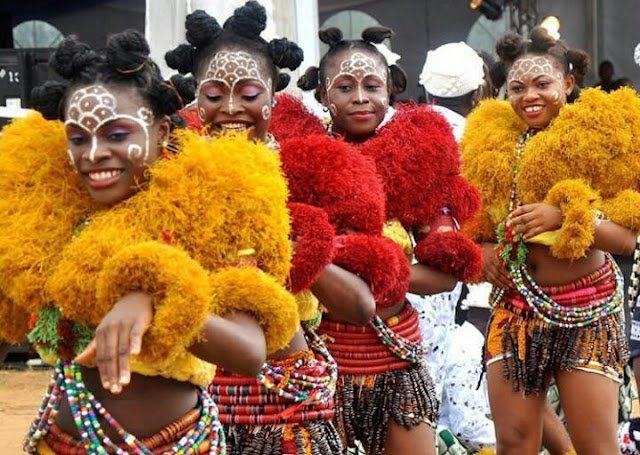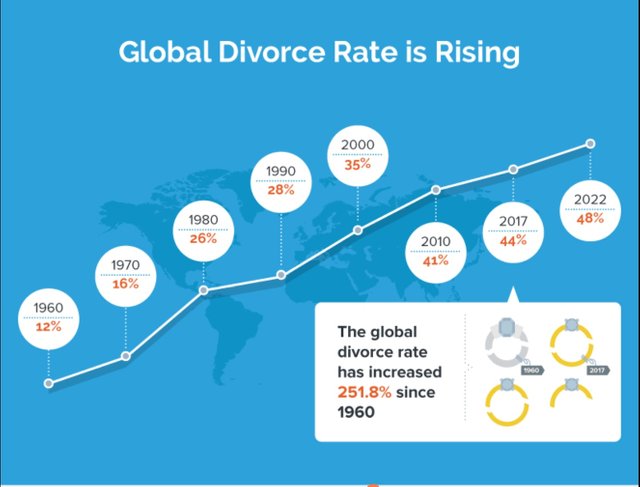Introduction
The Nkuho Cultural Practice
Nkuho is a bride fattening practice that was popular among the Efik people of South-Eastern Nigeria. According to the custom of the people of Efik ethnic group, a woman is considered to be ready for marriage only if she has undergone the fattening room process known as Nkuho or Mbobi. If any family offers their daughter for marriage without first making her undergo this traditional process of education and body treatment, the girl would be seen as a misfit, and this would create a negative impression about her family of origin. Also, traditional families held the belief that without providing this premarital grooming for their daughter before her marriage, their parental obligation to their daughter was incomplete.
The fattening room was used to prepare young ladies for their cultural and natural roles in when they are married and have attained womanhood. In those days, being fat and overweight was seen as a sign of prosperity, fertility and beauty. It was a thing of pride for any lady to be accepted into the fattening room. This was considered a privilege as it was a demonstration of virtue, sexual purity and proven virginity.
At times, the fattening room training was divided into three stages: a few months before the marriage, a week before marriage and after childbirth. The stage that comes just before marriage was by far the most impressive stage.
The woman who has come of age and is asked for in marriage will be dressed naked from waist to top with just a piece of cloth around her waist, her arms would dangle with beads and bangles as some beads run across her bare chest.
History has it that the Efiks inherited this cultural practice from the Egyptians, during the period of history the Efiks lived amongst the Egyptians spanning about 400 years. Whatever the remote origins of this practice, it had some notable benefits for the bride to be and the society.
The fattening process usually lasts for 3 to 12 months. During this period of seclusion, the lady would be fed large portions of selected healthy meals loaded with carbohydrates and fat to make her grow fat and healthy. She would be tended to entirely by older women so that she won't have to stress herself in any way. She will be bathed and thoroughly massaged many times a day and allowed to have enough sleep every day. In those days, a fat lady was perceived as the standard of beauty.
This was to make sure that, on presentation to her husband, she would be very healthy, and attractive and ready for all the demanding tasks that come with marriage. Moreover, the state of health at which she would be handed over to her husband served as the standard of health which the husband is expected to ensure he maintains the bride after marriage.
Another benefit of this fattening room culture was the educational aspect of the culture. During the entire period of time the woman is secluded and fed and massaged to grow fat, they are also trained on many life-skills. She will be taught cultural etiquette by elderly women selected from the village. She will be taught how to cook and care for her husband, her home and any visitors to her home. She would also be taught craft-works, a skill which she'll use in the future to support the husband economically while also making basic artefacts to decorate and beautify her home instead of always buying these. The African woman was trained never to be indolent, folding her arms and becoming a liability to her husband.
After eating, she has to sleep and rest properly. When she wakes, she learns the Efik dance steps, the Ekombi, ntimi and ebak-idok from experts who are brought in just for the purpose of teaching her because on the day of her wedding, she will have to dance. Moreover, she would use these social plays to entertain her husband and keep the relationship alive and enjoyable.
Desired Modifications to the Culture
There are a few things about the Nkuho Cultural Practice which modern scientific knowledge can
help improve.
For instance, one of the practices involved female genital mutilation. The believe was that it will help curb female promiscuity. But as medical science has shown, this aspect of the tradition was very harmful. It would be best if this aspect it totally discontinued from this cultural practice.
Another aspect of the practice is overfeeding, which often resulted in the maidens being overweight, regardless of any underlying medical conditions. Modern adaptation of this cultural practice would do well to keep the feeding regime balanced to avoid negative health outcomes both in the short and long term.
These changes if put in operation would give this cultural practice a new appeal, allowing it to continue serving the purpose of educating women on how to fulfil her feminine roles with dignity.
Conclusion
Beauty has sent many women into marriages but their character is busy returning them back to their parents and to the streets. While many men looking for life partners would hardly resist the allure of a beautiful lady in the modern context, the erosion of values and morals and the dearth of virtues among women has led to an alarming increase in divorce rates and broken homes.
The traditional African woman is a home maker, a peace builder, a catalyst for sustainable growth and development. Sadly, the traditional institutions which hitherto groomed women for this lofty role in society no longer exists. The average woman grows up pretty but empty. They wish to be loved and accepted as they are, without expecting them to contribute towards building their homes and the immediate society in any way.
We need to restore these cultures that placed premium on female child education and that celebrated and dignified the African woman who is both knowledgeable and healthy enough to assume her quintessential role at home and in society, with dignity and full glory and honour. We need to reinvent the Nkuho or Mbobi culture and let the global community learn from us.
Many thanks to you for making out time to read about this my culture which many today know little about and which I believe should be rekindled. Thanks to this community for hosting this theme. I also appreciate the work of the moderators and curators.
.jpeg)
.jpeg)


Wow wow, a culture full of fun and patriarchal. This is by far the unique culture. Thank you so much for sharing it. One thing is so unfortunate that the divorce rate is surging. I want to know that why is that?
Moreover, i have also wrote about my country culture. If you have time then read it and share your views.
Downvoting a post can decrease pending rewards and make it less visible. Common reasons:
Submit
As a marriage Counsellor I've personally found that most cases of cracks in marriages is due to lack of skills of relationship management among the spouses. This culture of bride preparation allowed elderly women to teach the bride to be those skills they need to build their homes and create lasting peace and harmony. In those days, divorce rates were very low. But nowadays, the average lady goes into marriage with just her beauty, often along with ego and wrong stereotypes learned from social media. And their relationships break up with the slightest strain. Let go to your blog and read about your culture. It's fun learning these things.
Downvoting a post can decrease pending rewards and make it less visible. Common reasons:
Submit
I can't stop laughing with the fat women. I never knew there is a culture like this. How can they be eating greedily and will not get fat. Thanks for your entry
Downvoting a post can decrease pending rewards and make it less visible. Common reasons:
Submit
Culture is really the best.
Thanks for sharing
Downvoting a post can decrease pending rewards and make it less visible. Common reasons:
Submit
Your article snagged my interest from the beginning, and I was thinking I don’t like the over feeding part of this tradition, I am glad to see that you also don’t like that part and feel it could be changed if brought back.
Best wishes
Downvoting a post can decrease pending rewards and make it less visible. Common reasons:
Submit
Thanks for sharing this amazing entry, I've learned something new which is where the Efik people learnt nkuho cultural practice from - Egypt and this was some 4 centuries ago wow. Continue sharing your quality contents I appreciate.
Downvoting a post can decrease pending rewards and make it less visible. Common reasons:
Submit
Every culture is different and interesting.. thank you for sharing ❤️
Downvoting a post can decrease pending rewards and make it less visible. Common reasons:
Submit
Hahahaha this tradition is sooo funny
It means at that time all the women at marriage age were all very bulky or over weight 😂
Well on the bright side they are taught skills
But I do have questions
Is the fattening tradition practiced up till now?
Do they still mutilate the girls up till now?
Or have they stopped
Downvoting a post can decrease pending rewards and make it less visible. Common reasons:
Submit
A few regions still mutilate the girls but many CSOs and NGOs are making efforts to educate communities on the dangers of this practice and discourage them from continuing with the practice of female genital mutilation. Our wish is that this tradition be filtered and refined, leaving out the negatives and sustaining and enhancing the positives.
Downvoting a post can decrease pending rewards and make it less visible. Common reasons:
Submit
Ok! Got it!
Downvoting a post can decrease pending rewards and make it less visible. Common reasons:
Submit
Your culture is quite amusing, I love how they trained the maiden about how to cook, tend and care for her husband and family. Also a skill to support her husband financially but the over feeding part of it is what I'm not okay with. Thank you for sharing.
Downvoting a post can decrease pending rewards and make it less visible. Common reasons:
Submit
I can't hold my laughter when i saw the pictures of those fat ladies still rushing to eat. When I was schooling at Calabar, I used to see them dancing around the street and the market place but needn't know the story behind it.
Now I know where the culture originated, all thanks to the wonderful platform that has opened our eyes on so many things.
Thanks for sharing this great post.
Downvoting a post can decrease pending rewards and make it less visible. Common reasons:
Submit
I really love the culture, how i wish i can go there and see them in person. As for the fat women, i laugh in english
Downvoting a post can decrease pending rewards and make it less visible. Common reasons:
Submit
😂😂😂
Downvoting a post can decrease pending rewards and make it less visible. Common reasons:
Submit
I can stop laughing at the fat women eating .hihihi they really deserved the weight they have .culture is the best thing people get amazed with ..Your cultural identity should be your pride .thanks for sharing with us
Downvoting a post can decrease pending rewards and make it less visible. Common reasons:
Submit
Thank yoy for sharing this history. Somehow i think we are more civilised now and most of those traditions wouldnt have been healthy again today....i think.
It quite interesting reading this ttadition.😊
Downvoting a post can decrease pending rewards and make it less visible. Common reasons:
Submit
Hello, good to see you participating in the contest.
Downvoting a post can decrease pending rewards and make it less visible. Common reasons:
Submit
Thank you. I sincerely appreciate your work. 👍
Downvoting a post can decrease pending rewards and make it less visible. Common reasons:
Submit